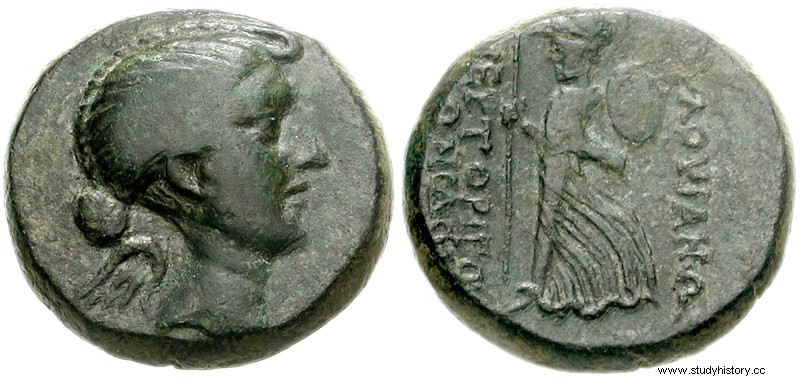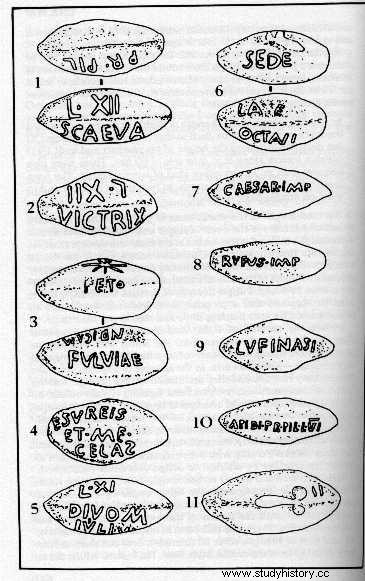Fulvia , wife of Marco Antonio, was a woman who rebelled against the role attributed to her by Roman society - that of a mere troupe - and who played an important role in the decisions of her own husband - as in her two previous marriages - and, therefore, of the second triumvirate that ruled Rome (Marco Antonio, Octavio and Marco Aemilius Lepidus ). While Marco Antonio was in Egypt -specifically in Cleopatra's bed-, Octavio was gaining the favor of the Romans and, what is worse, of the legions that had fought with Antonio, but Fulvia was not going to sit idly by …using her woman's weapons -in this case of a bad woman- she got her husband's little brother, Lucio Antonio , recruit 8 legions to face Octavio. His intentions:to get Marco Antonio's attention by forcing him to return to Rome-«tear him out of the arms of that bitch "- and regain lost power.

The 1st non-mythological woman to appear on a coin
In 41 BC, and after Octavian's offensive, Lucius Antony withdrew to the city of Perúsia (current Perugia) awaiting the return of his brother and Fulvia's negotiations with the legions stationed in Gaul... but no one came to his aid. Octavio's troops besieged the city and faced with the difficulty of taking it, he decided to starve it into surrender. During the two-month siege, a period SMS battle ensued. … the slingers -the Balearic people were famous- were launching projectiles (of stone or lead) on which they engraved phrases:«pete culum Octaviani » (for Octavio's ass), «Luci Antoni calve, Fulvia, culum pandite » (Lucio Antonio calvo, Fulvia show us your ass)… and other less humorous «Esureis et me celas » (although you hide it, you are starving).

After two months of siege, in the so-called Perusian famine , Lucius surrendered the city. Fluvia fled to Greece and Lucius was exiled with the promise not to return to Rome. When Antony returned to Rome, he blamed his wife for the war and married Octavian's sister, Octavia the Less , to publicly demonstrate his reconciliation with Octavio.
Sources:The New York Times, History of Information
